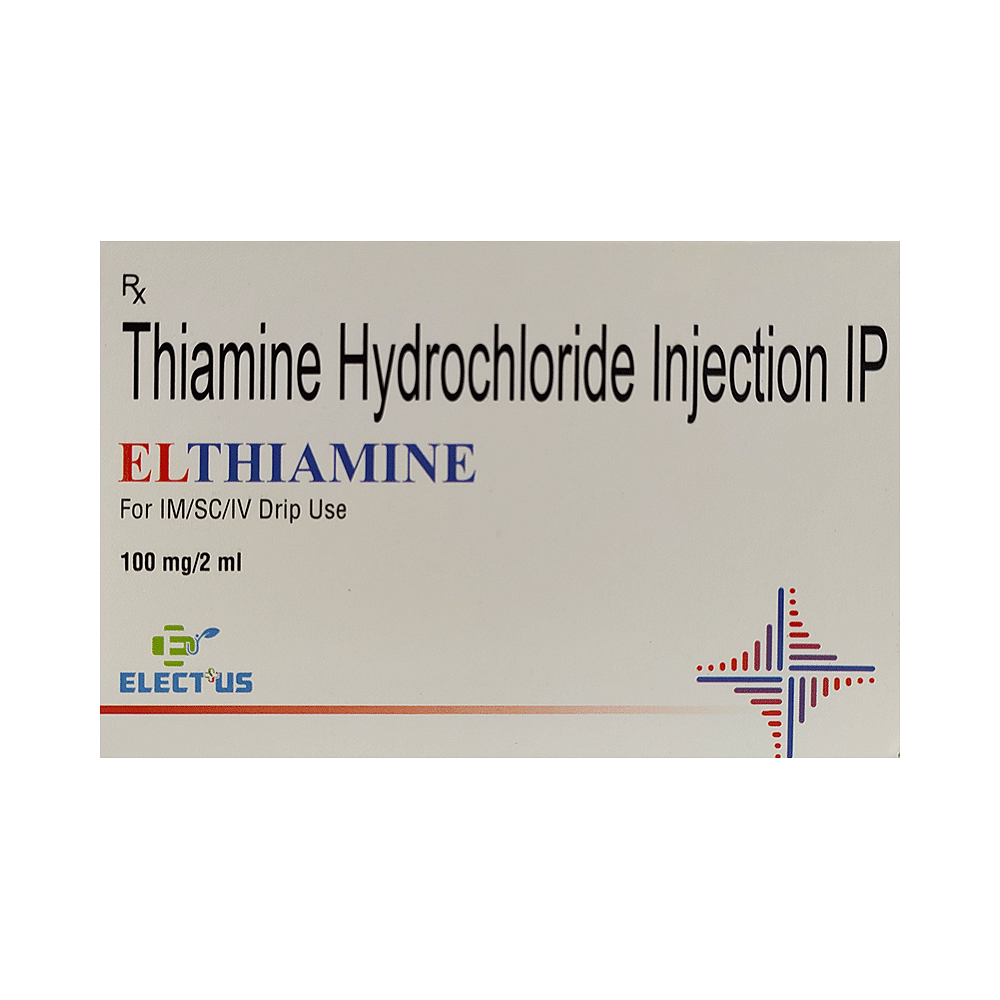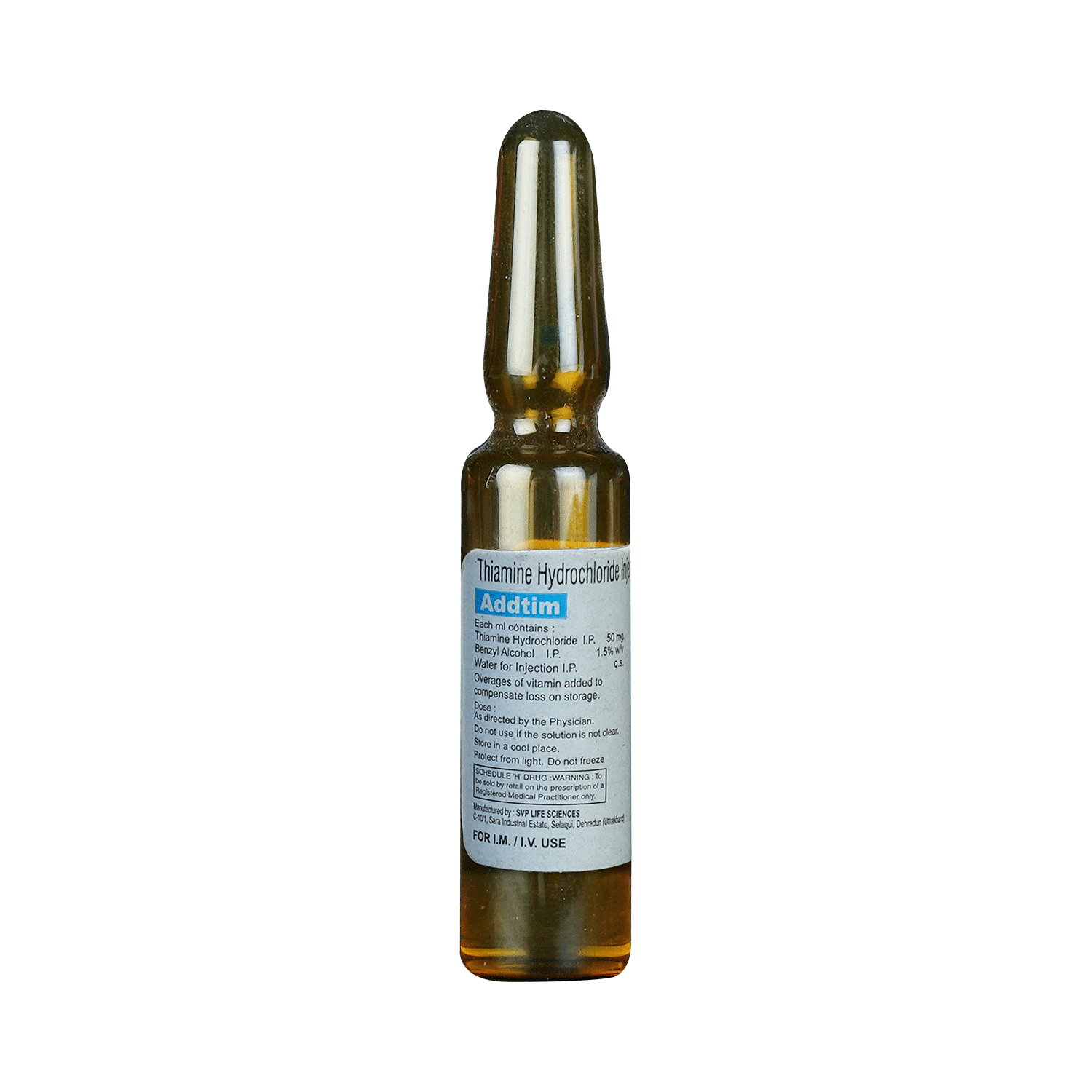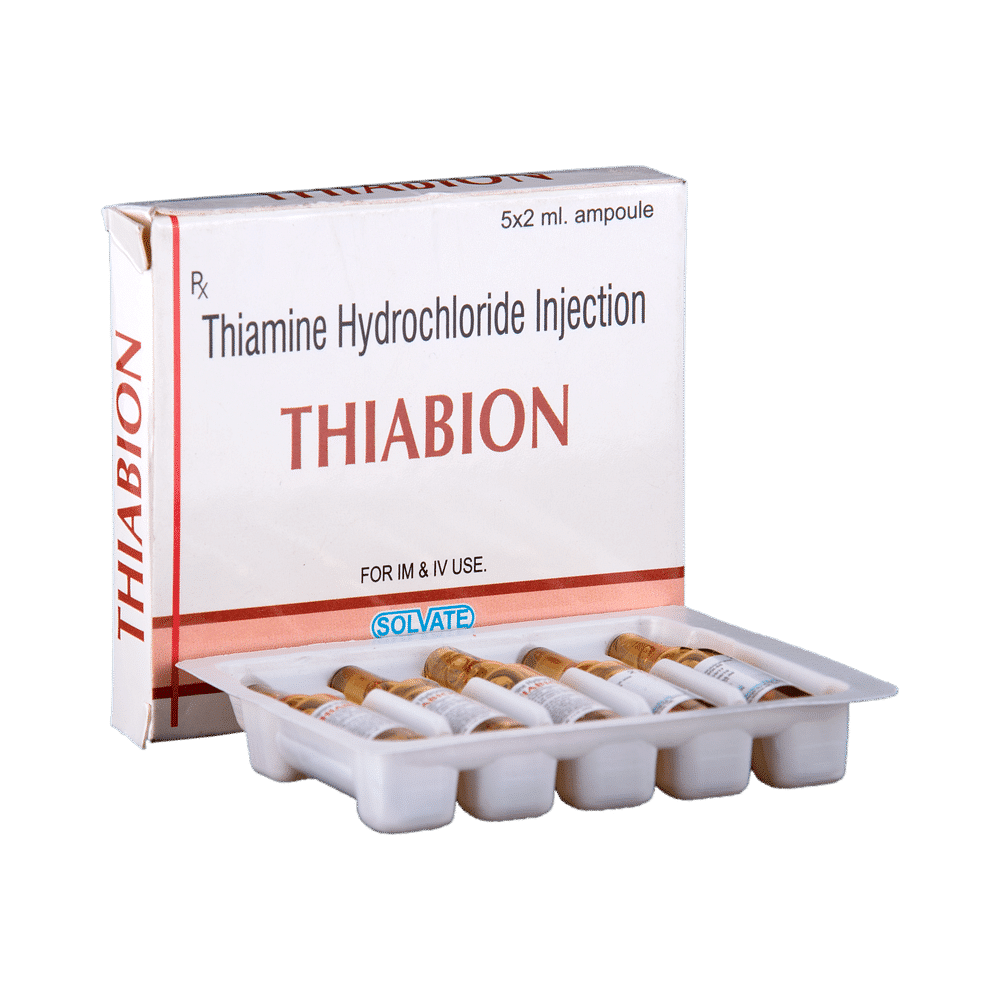
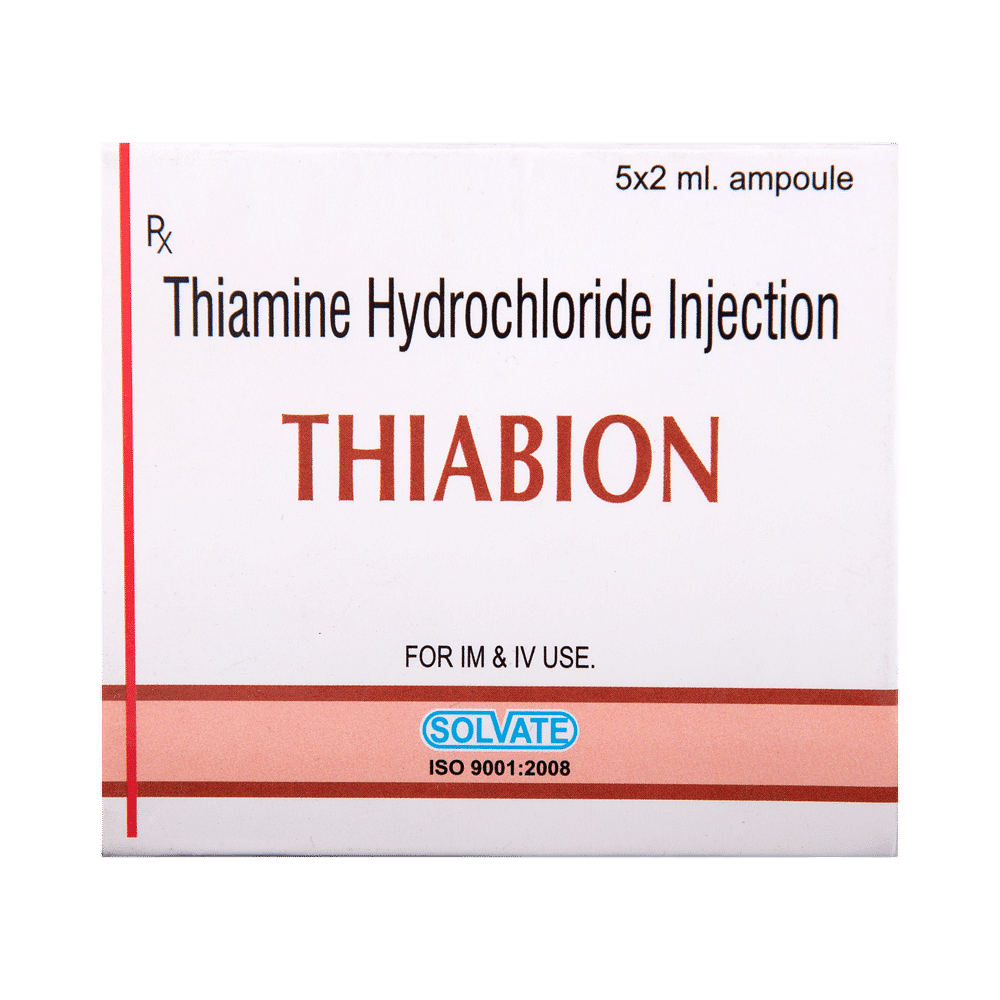
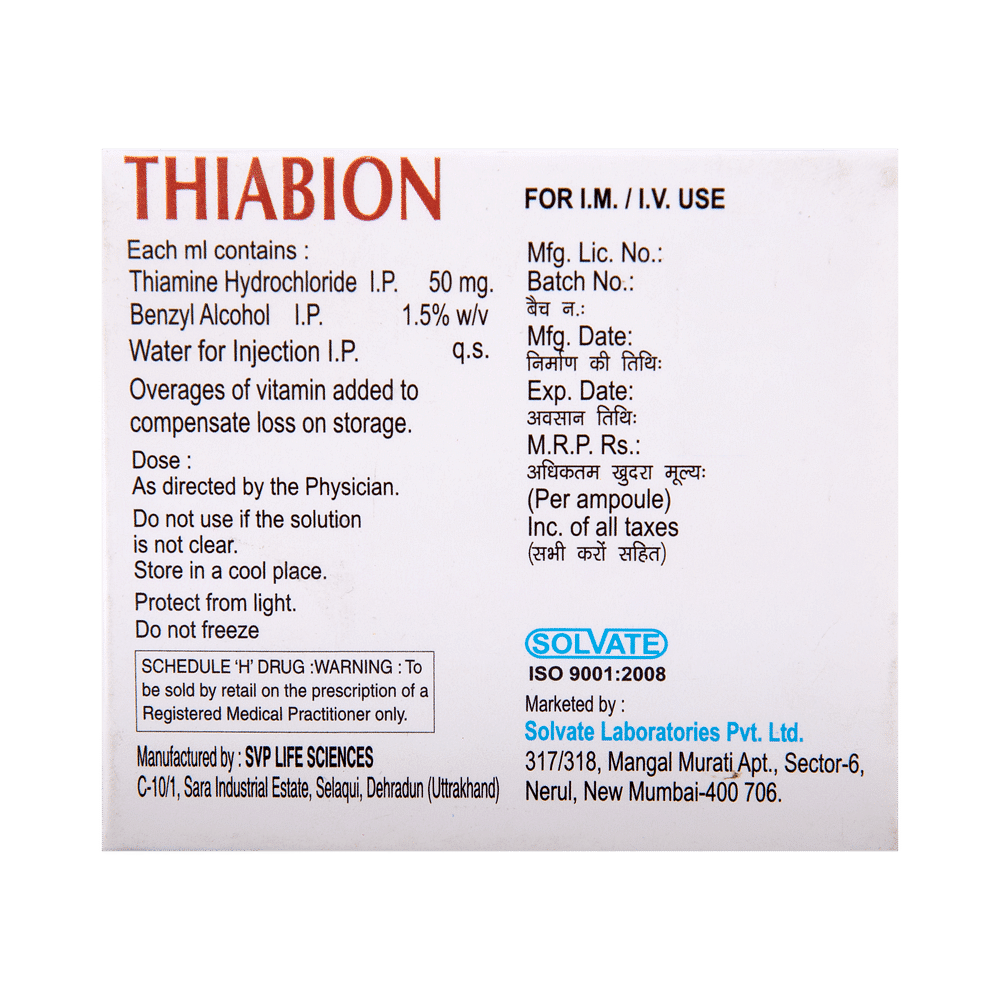
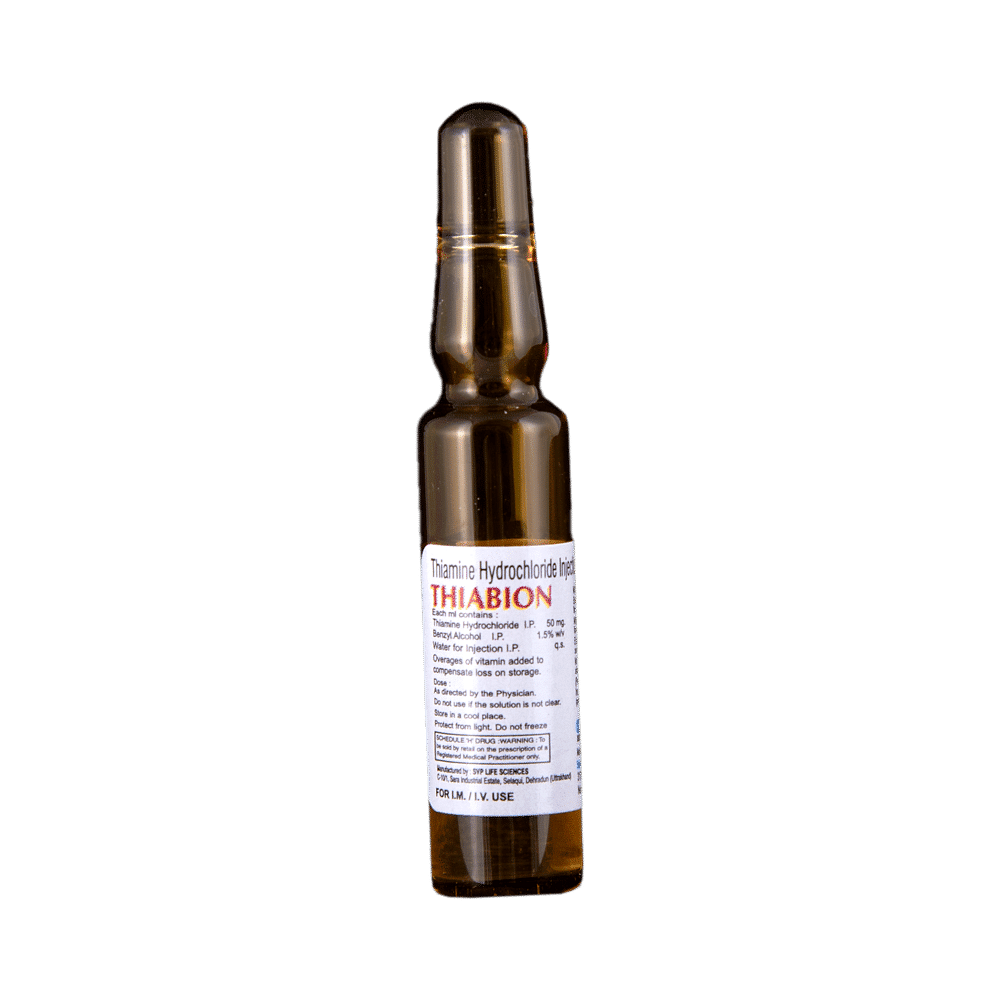
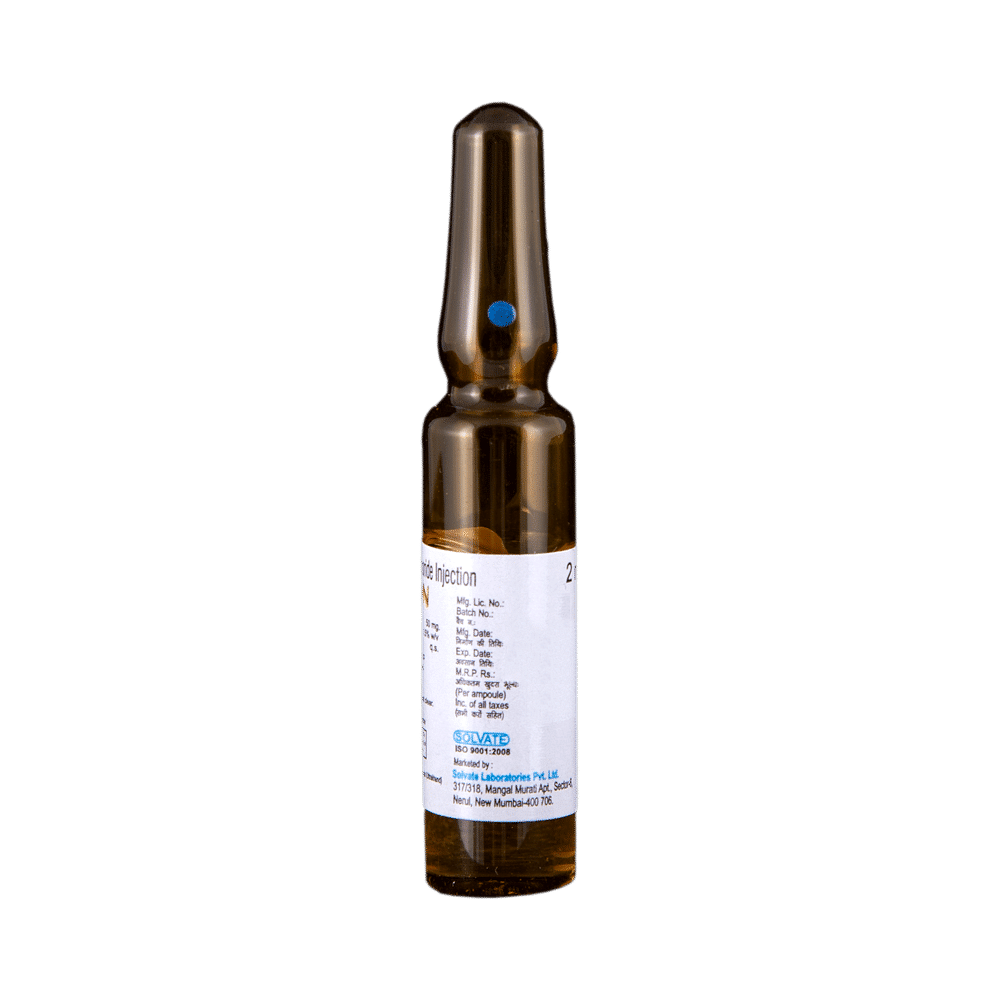
Thiabion Injection
Manufacturer
Solvate Laboratries Pvt Ltd
Salt Composition
Thiamine(Vitamin B1) (50mg/ml)
Key Information
Short Description
Thiabion Injection is a supplement of vitamin B1 used to treat vitamin B1 deficiency, digestive problems, and other conditions.
Dosage Form
Injection
Introduction
Thiabion Injection is given under the supervision of a healthcare professional and should not be self-administered. You should take it regularly to get the most benefit from it. This medicine may be only part of a complete program of treatment that also includes making changes to your diet and taking calcium and vitamin supplements. Thiabion Injection may cause some common side effects such as injection site reactions, skin irritations, cough, and decreased blood pressure. Before taking this medicine, let your doctor know if you have any heart, kidney, or liver disease. Some other medicines can decrease the absorption of vitamins so let your doctor know all other medicines you are taking to make sure you are safe. It is important to ask your doctor's advice before taking any other vitamin supplements.
Directions for Use
Your doctor or nurse will give you this medicine. Kindly do not self administer.
Safety Information
Side Effects
No common side effects listed.
Alcohol Warning
Caution is advised when consuming alcohol with Thiabion Injection. Please consult your doctor.
Breastfeeding Warning
Thiabion Injection is safe to use during breastfeeding. Human studies suggest that the drug does not pass into the breastmilk in a significant amount and is not harmful to the baby.
Pregnancy Warning
Information regarding the use of Thiabion Injection during pregnancy is not available. Please consult your doctor.
Interacting Medicines
Orlistat
How it works
Thiabion Injection provides essential nutrients.
Quick Tips
Thiabion Injection is prescribed to treat vitamin B1 deficiency. Inform your doctor if you develop any allergic reactions or skin irritations. Let your doctor know if you are pregnant or breastfeeding. You should also include vitamin B1-rich food in your diet like whole grains, legumes, fish, poultry, and fortified breakfast cereal.
Related Medicines
Frequently asked questions
What is Thiabion Injection?
Thiabion Injection is a pharmaceutical product that provides thiamine (vitamin B1) for the treatment of vitamin B1 deficiency. Thiamine plays a vital role in carbohydrate, fat, and protein metabolism within the body.
What does Thiabion Injection do?
Thiabion Injection provides thiamine to support essential metabolic processes such as converting carbohydrates into energy (ATP). This supports nerve function, ensuring proper nerve cell communication and activity.
Who might be at risk for a Thiabion Injection deficiency?
Individuals with conditions like alcoholism, malabsorption disorders, or poor dietary habits are more susceptible to vitamin B1 deficiency. Additionally, individuals with congenital heart disease, kidney patients on dialysis, and the elderly may face increased risks of deficiency.
How is Thiabion Injection administered?
Thiabion Injection should be administered only under the guidance of a qualified healthcare professional. Dosage will be determined based on individual patient needs and prescribed by a doctor. Following your doctor's instructions carefully is crucial for optimal results.
Does Thiabion Injection cause weight gain?
Thiabion Injection does not directly contribute to weight gain. However, severe vitamin B1 deficiency could result in complications like weight loss and other related issues.
Is Thiabion Injection good for diabetics?
Thiabion Injection has shown potential benefits for diabetic patients by improving blood sugar control. It is essential to consult with a doctor before using this product, especially if you have any concerns about diabetes management.




